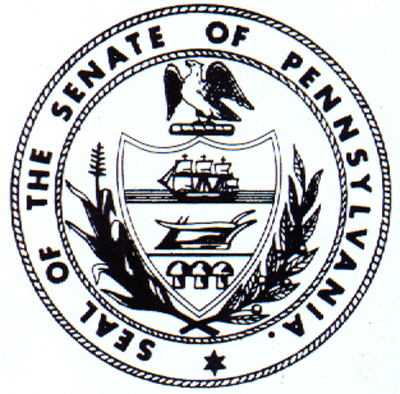|
|
||||||
FUMO, GREENLEAF OFFER PLAN TO INCREASE MASS TRANSIT FUNDING HARRISBURG, January 12, 2005 – Legislation to bolster mass transit funding by increasing the realty transfer tax will be introduced today by state Sen. Vince Fumo (D-Philadelphia), with Sen. Stewart Greenleaf (R-Montgomery) as primary co-sponsor. The bipartisan plan would hike the state portion of the realty transfer tax by a half percent -- from 1 percent to 1.5 percent of the sale price of real estate. Currently, that would generate approximately $200 million in additional revenue annually, which would be dedicated to mass transit under the bill. The bill has nine co-sponsors including Fumo and Greenleaf. In addition, Rep. Rick Geist (R-Blair), the Republican chairman of the House Transportation Committee, indicated that he will give the concept serious consideration. Senate Democratic Transportation chairman Sen. Barry Stout (D-Washington) is among the co-sponsors, and House Democratic Transportation chairman Keith McCall (D-Carbon) has endorsed the plan. Many of the state’s public transportation agencies now confront unprecedented operating deficits, and the two largest are contemplating deep service cuts and massive fare increases if they do not obtain significant increases in state funding. "The realty transfer tax will help to stabilize mass transit’s financial condition," Fumo said. "It increases with inflation because it grows as the value of real estate grows. We have an opportunity to solve this problem for many years to come." "Mass transit needs a dedicated funding source, and of all the proposals I’ve heard about so far, Sen. Fumo’s seems to have the most merit," Geist said. Fumo noted fairness as another advantage -- because it is assessed at the time any deed is transferred on a residential or business property, the source of the funding is weighted heavily toward areas with dense populations and high real estate prices, which coincides with areas where public transit ridership is highest. Half of Pennsylvania’s realty transfer taxes are paid in the five-county region served by the Southeastern Pennsylvania Transit Authority (SEPTA), which is the largest recipient of state transit aid. Greenleaf is a SEPTA board member. Also, Fumo pointed out, it is a tax that touches most people on few occasions. "While it produces enough money to solve the mass transit crises, average Pennsylvanians will pay it only rarely in their lifetimes," Fumo said. Transit systems in the state face an aggregate deficit of at least $95 million for the remainder of this fiscal year. Stop-gap funding proposed by Governor Ed Rendell when the legislature failed to act on the problem before adjourning at the end of 2004 would provide $18.8 million, or enough to carry the larger transit agencies through another month of operation without service cuts and fare increases. The deficit is expected to grow larger next year. The last significant state funding boost for mass transit came in 1997. Since then, there have been only minor line-item increases in the annual state budget, which have failed to keep pace with inflation. Pennsylvania’s transit systems serve urban, suburban and rural areas, spending $1.2 billion on operations and over $550 million on capital improvements each year. Most of that money remains in the local economy. Transit providers directly employ 15,000 people and generate an estimated 53,000 additional jobs through their contractors and suppliers. In the smaller urban systems, about half of the passenger trips are work-related. In rural sections of the state, 44 percent of all transit riders are senior citizens, and 17 percent are disabled. "Failing to support mass transit at this critical time would not only place existing jobs in jeopardy, but it would also harm some of our most vulnerable citizens," Fumo said. In an attempt to solve perennial mass transit financing woes in 1991, the state dedicated proceeds of the Public Utility Realty Tax (PURTA) to transit. Because of changes made in concert with the 1996 electric deregulation law, however, the amount of transit money from PURTA declined by about 70 percent since then. That is among the main reasons that transit systems face such a dramatic funding crisis today. "We need a healthy mass transit system, not just for the people who ride the buses and trains, but also to alleviate highway congestion for commuters by taking cars off the road, and to reduce the fossil fuel pollutants in our air," Fumo said. # |


